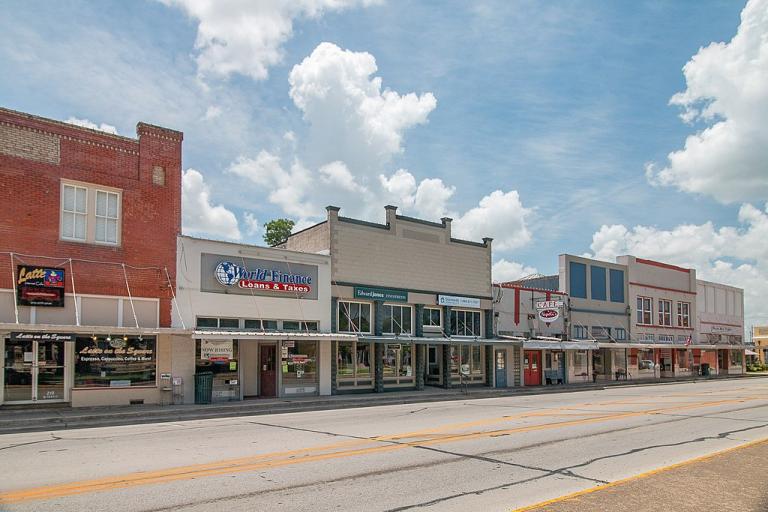We Americans are polarized politically. That’s obvious. But, contrary to the common assumption, this is not due to the rise of and the resistance to Donald Trump.
The man who wrote the book on the phenomenon published it back in 2008, during the presidential campaign of John McCain and Barack Obama, a centrist Republican and a black Democrat whose victory was hailed for “bringing us together.”
The man is Texas journalist Bill Bishop and the book is The Big Sort: Why the Clustering of Like-Minded America Is Tearing Us Apart.
He showed that Americans are increasingly sorting themselves out according to income, occupation, education, religion, and lifestyle, to the point that they seldom interact with anyone different from themselves. This means that they have trouble even imagining anyone having different views than their own, which leads to stereotyping, demonizing, and marginalizing their fellow citizens. Such attitudes, he said, are harmful to democracy. “Mixed company moderates; like-minded company polarizes.”
In 1976, some 27% of Americans lived in “landslide counties,” in which one presidential candidate won by 20% or more of the vote. In 1996, it was 42%; in 2004, it was nearly half. In updating the numbers, Bishop says that in 2016, the percentage is 60%. Furthermore, he says, 20% of the counties are “super-sorted,” with 80% voting for the same person.
But this is not just a political phenomenon. People are sorting themselves out in the churches they attend, the clubs they belong to, and who they hang out with. The result, he wrote, is that Americans have separated into “pockets of like-minded citizens that have become so ideologically inbred, that we don’t know, can’t understand, and can barely conceive of ‘those people’.”
Thus we have the perhaps apocryphal liberal who could not believe that Donald Trump was elected president because “I don’t know anyone who voted for him!” (Film critic Pauline Kael said something like that about Nixon.)
Crawford concludes,
“The message people living in a democracy must understand more than any other message is that there are Americans who aren’t just like you, they don’t live like you, they don’t have families like yours, and they don’t think like you, they may not live in your neighborhood, but this is their country, too.”
One of the staff writers for Politico, Michael Kruse, has revisited The Big Sort after 14 years and interviewed Bill Bishop, writing it up in Why Trump Isn’t to Blame for the Nation’s Toxic Political Tribalism.
The interview is worth reading in its entirety, but what struck me is that Bishop, realizing the liberal homogeneity of Austin, decided to take his own advice and moved to what might seem like Austin’s polar opposite: the small, rural, conservative town of La Grange (population, 4,600).
Here he found more diversity than in cosmopolitan Austin. After all, with so few people, they have to interact with different sorts. Here are some excerpts from the interview:
Bishop: The diversity of small towns is more interesting than the sort of mono-politics of the big city.
Kruse: So that’s been a conscious decision on your part at various points in your life to not live in those monocultures?
Bishop: Well, I live in an 80-percent Trump county.
Kruse: The anti-Austin.
Bishop: The anti-Austin. But we know everybody. People in Austin would be horrified, but it’s more diverse than Austin in that sense — in the way people live. It’s more diverse racially too.
Kruse: And how is it more diverse politically if it’s just sort of Austin flipped on its head from a voting standpoint?
Bishop: Because everybody knows everybody. Everybody goes to the same church. Everybody goes to the same clubs. The town isn’t big enough to have a liberal club over here and a conservative club over there. If you’re working on X problem, you work with everybody, and so the size of the place mitigates against segregation.
Kruse: Which is why it’s beneficial, perhaps, to be in a place like that rather than a bigger neighborhood in a bigger city where everybody thinks the same stuff?
Bishop: It’s just more interesting. I mean, the mayor checks out groceries. We have a Black woman mayor in La Grange in an 80-percent Trump county who checks out groceries. Which is why she got elected. Everybody knows her, and everybody trusts her. . . .
[Kruse asks how we get around this sorting]
Bishop: I get around it by — in a small town, you can help other people. We help one another. We had a flood here, Hurricane Harvey, that was almost five years ago now — 80-percent Trump county and we needed our Saint James Episcopal Church room [for a meeting]. And most people who got flooded out were Hispanic, and the Catholic priest got up and said, “We need to help these people. But if you ask them for their names, addresses, Social Security numbers, all that stuff, they won’t come because a lot of them are illegal. So don’t ask.” And there was no discussion. People just agreed: We’re helping — we’re not asking. And so people just came in. They got helped.
When you’re working on a problem that’s right in front of you and it’s not abstracted and it’s not about identity, it’s about somebody’s hungry and doesn’t have any clothes, then all those other issues begin to go away. They go away and you deal with people as they are and not as an ideologue. And it’s a great feeling. It is the greatest there is. You solve this problem not by talking about it, but by doing stuff. So don’t talk about it — do something. We’re not going to become good people and get over this modern problem because of a great leader. We’re going to get over it because we work with others who aren’t like ourselves.
Photo: La Grange, Texas, Renelibrary, CC BY-SA 4.0 <https://creativecommons.org/licenses/by-sa/4.0>, via Wikimedia Commons













